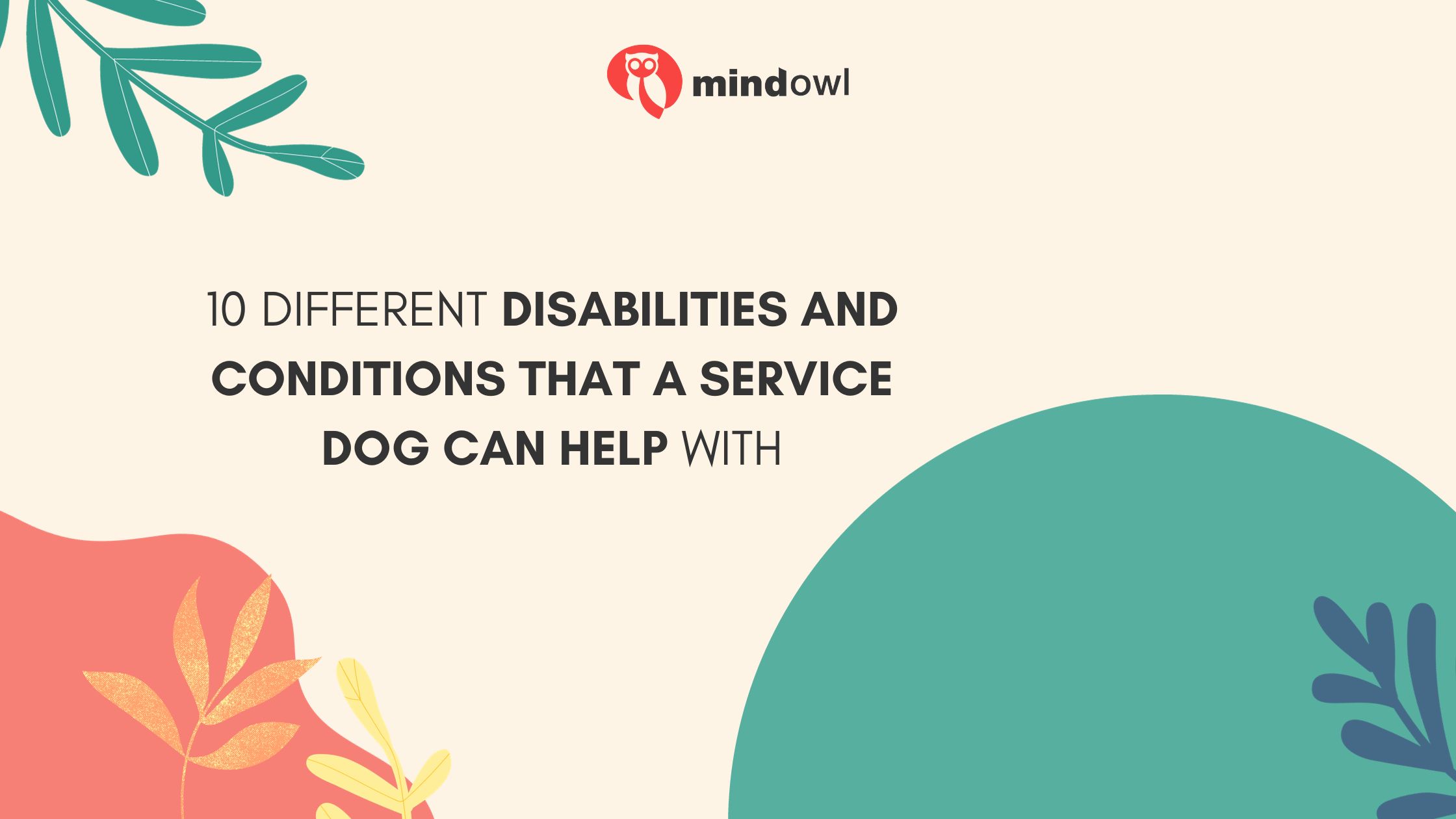Navigating life with a disability or health condition can be challenging, but did you know that specially trained furry friends can offer significant help? Welcome to the world of service dogs! These incredible animals provide assistance that is unique to each handler’s needs.
From alerting those with severe allergies to offering emotional support for individuals battling PTSD, service dogs are an embodiment of versatility and dedication. Through this exploration, you’ll discover various disabilities and conditions that can be aided with the help of these dogs.
How to Take Great Care of Your Service Dog
When you have a service dog, caring for them is an essential part of your routine. These dogs are not just pets. They perform specific tasks to help enhance your lifestyle. For this reason, providing your pup with good nutrition, exercise, and regular vet visits should be necessary.
Along with high-quality foods, occasional treats like CBD-enriched bites could also be beneficial for maintaining their physical well-being as they can help your dog relax. And, of course, don’t forget to give them plenty of love and mental stimulation to support your companions’ health.
10 Different Disabilities/Conditions Service Dogs Can Help With
Service dogs play a role in assisting people with a wide range of disabilities and conditions. Let’s delve into ten different situations where service dogs can prove incredibly beneficial.
1. Mobility Impairments
People with mobility impairments can greatly benefit from the support of mobility assistance dogs. These service dogs are trained to help individuals with conditions such as cerebral palsy or spinal cord injuries. They assist with daily tasks and provide a steady presence.
2. Vision Impairment
Vision impairment can be particularly challenging in daily life, but service dogs offer meaningful assistance. They help people with significant vision loss or blindness by leading them safely through their surroundings. This includes avoiding obstacles or signaling changes in elevation.
3. Deafness (Partial and Complete)
For individuals who are faced with hearing loss, whether partial or complete, service dogs can provide invaluable assistance. These service dogs are trained to recognize and alert their handlers to significant sounds such as doorbells, smoke alarms, or a baby’s cry.
4. Autism
Service dogs are often provided to children with autism, but adults also qualify. A service dog can help keep children safe while they’re on a walk and encourage them to socialize more. Dogs also provide an easy, always-available self-calming and regulatory mechanism.
5. Epilepsy
People living with epilepsy can greatly benefit from seizure response dogs. These service dogs are trained to react when their handler has a seizure, carrying out tasks like fetching medication or getting help. In some cases, these incredible dogs can even predict an impending seizure.
6. Arthritis
Arthritis service dogs assist their handlers with everyday tasks that may be troublesome due to joint pain and stiffness. They can help with opening doors, picking up dropped items, and providing stability during movement, ultimately enhancing their handler’s quality of life.
7. PTSD (Post Traumatic Stress Disorder)
Service dogs provide significant assistance for individuals dealing with Post Traumatic Stress Disorder (PTSD). Known for reducing symptoms like anxiety and panic attacks, the presence of PTSD service dogs offers emotional support. They can also facilitate physical comfort.
8. Multiple Sclerosis (MS)
Multiple Sclerosis (MS) patients can greatly benefit from the help of mobility assistance dogs. These service dogs are trained to perform tasks such as fetching items, turning lights on or off, and giving stability for balance. These dogs provide considerable relief to their owners.
9. Parkinson’s Disease
People with Parkinson’s Disease often experience mobility challenges, and mobility assistance dogs can offer invaluable support here as well. These service dogs assist with tasks that may be difficult because of tremors or rigidity, such as providing assistance when standing or walking.
10. Mental Health Conditions
If you have bipolar disorder, anxiety, depression, and/or a mood, eating, neurocognitive, psychotic, or substance abuse disorder, then you’ll qualify for a service dog. Service dogs will often distract or diffuse the handler during times of distress or provide deep pressure therapy.
In Conclusion…
Embrace the power and practicality of service dogs, whether for yourself or a loved one coping with a disability or health condition. These intelligent companions are tirelessly dedicated to aiding their handlers, enhancing independence, and improving quality of life. Take the next step to understanding more about how service dogs could lend support to your unique circumstance.
MindOwl Founder – My own struggles in life have led me to this path of understanding the human condition. I graduated with a bachelor’s degree in philosophy before completing a master’s degree in psychology at Regent’s University London. I then completed a postgraduate diploma in philosophical counselling before being trained in ACT (Acceptance and commitment therapy).
I’ve spent the last eight years studying the encounter of meditative practices with modern psychology.


